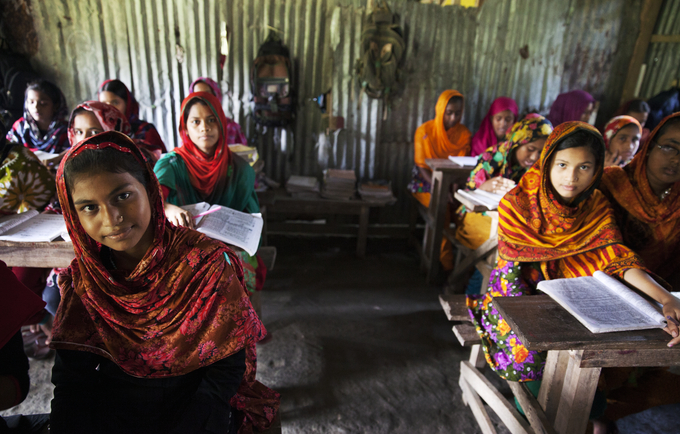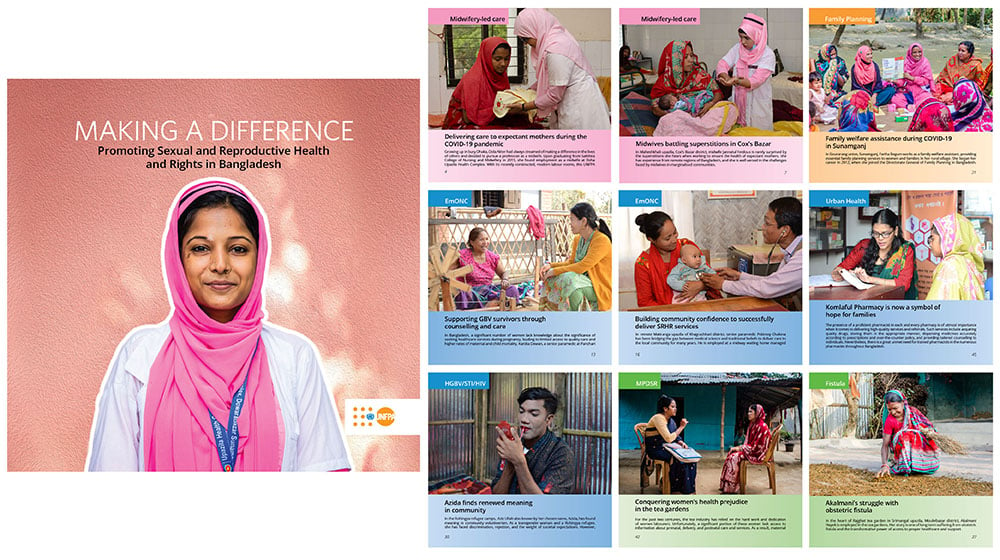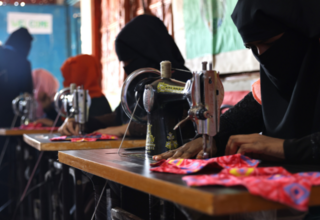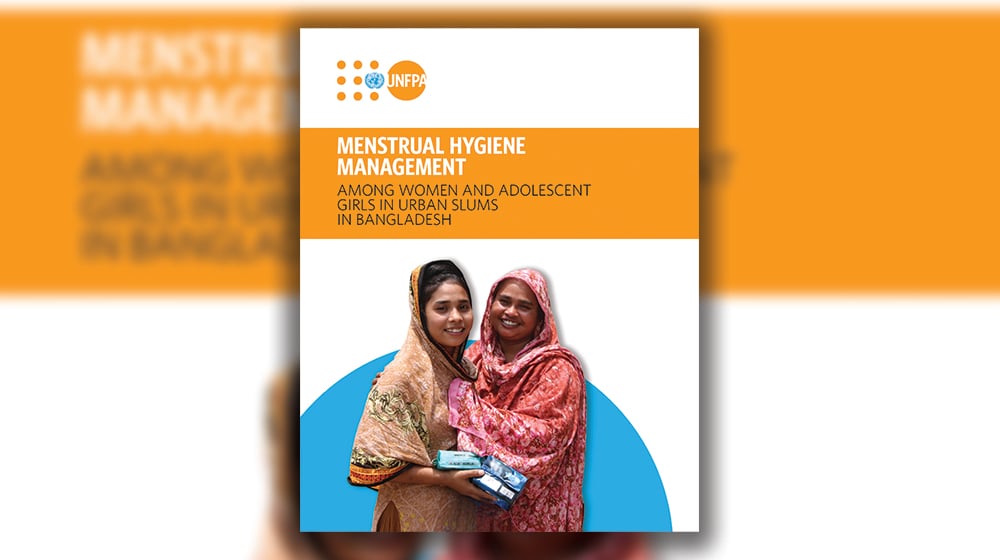While Bangladesh has made gains in providing support services in maternal, neonatal and children’s health (MNCH) and family planning (FP), there are still considerable gaps and unmet need. An estimated 5,200 mothers die each year due to pregnancy-related causes as high maternal mortality and morbidity remain serious concerns in the country.
Services such as family planning; skilled birth attendants at deliveries; antenatal, post-partum and emergency obstetric care are critical life-saving means of support that impact fertility, maternal mortality and morbidity.
UNFPA, Bangladesh is using a rights-based approach to addressing Sexual and Reproductive Health and Rights in collaboration with the government and other UN organizations honoring the country’s commitment to the UN Secretary General’s Global Strategy for women’s and children’s health.
Adolescent sexual & reproductive health
As young people make up a considerable and still growing segment of the demographic in Bangladesh, adolescent’s sexual and reproductive health deserves critical attention in the streamlining of effective Health Sector services and support.
Bangladesh currently faces a demographic window of opportunity, a time at which the number of people in working age group is high and the number of dependent (very young and elderly) is low. If the right investments in health, education and employment are made now a demographic dividend can be realized with the potential to propel development.
UNFPA is leading initiatives with partners to ensure adolescent’s receive information and for their sexual and reproductive health. UNFPA works through schools, madrasas, technical and vocational training centres and adolescent clubs.




